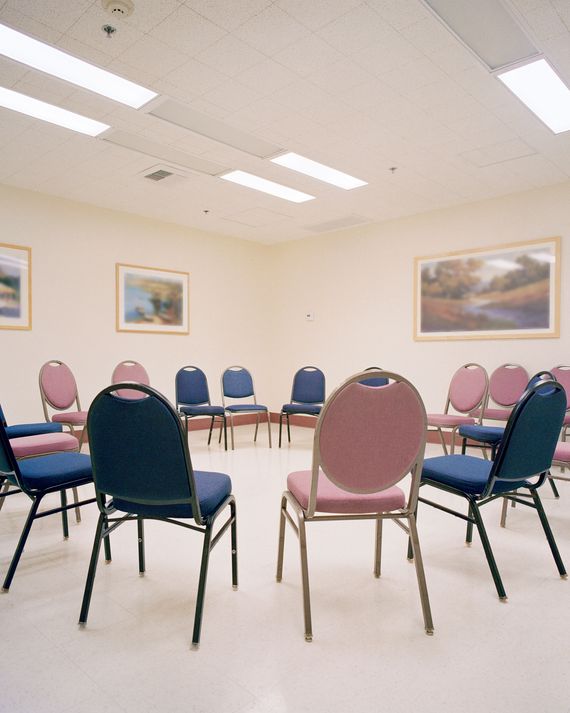
My philosophy on meeting attendance has always been that I only go when I feel like it and when I don’t. Meeting attendance is the best treatment for my disease, and I don’t ask myself if I’m in the mood, the same way a person on dialysis doesn’t base their treatment on whether they feel like it.
Then, last week, for the first time in 1,400 days, I skipped a meeting. Almost everything has changed in the last few days except for the fact that I still can’t safely drink or get high. I’m still an alcoholic in recovery, and I still depend on 12-step meetings. The world has changed; my disease hasn’t. But when emergency rooms are telling sick people to stay away, what does that mean for places that deal with less urgent matters?
When I staggered into a meeting in the spring of 2016, my situation was dire. If passing out in a doorway didn’t bring about real danger, the advancing liver damage would do me in. In the course of that one-hour meeting, I heard a few simple practical tips that made me believe I had a choice over whether I was going to get drunk that day like I did every day. I also connected with a guy who seemed to understand my situation and knew how to talk to me as I stood swaying in front of him. My hands shook, and I was sweating like a sprinter, but he told me it didn’t ever have to be like this again. He said he was living proof. He said keep coming back, that meeting-makers make it, that I should attend 90 meetings in 90 days. I listened and on May 15, I’ll celebrate four years of continuous sobriety. Some of the most meaningful moments in my life have been when someone stood in front of me, and I got to share that with them.
Without meetings, I couldn’t put together four sober days in a row. My obsession to drink lifted after three or four months, but I kept going to meetings. I’ve been to meetings in Rome, San Salvador, and Philadelphia. I go to meetings to help an alcoholic. Sometimes it’s someone else in the room, and other times, it’s just me.
Big promises were made in the literature: “We will comprehend the word serenity and we will know peace. No matter how far down the scale we have gone, we will see how our experience can benefit others. That feeling of uselessness and self-pity will disappear. We will lose interest in selfish things and gain interest in our fellows.” Big promises were kept.
Just before the spreading virus became a pandemic, I went to a meeting where several guys were counting days. I was able talk about what life is like today, and share the tools I use to stay away from a drink. I help other alcoholics because people did that for me when they didn’t have to, when they had other places to be, and simply because I needed it.
Social distancing is harder in a place where you’re used to getting hugs. It’s hard to have seen people every day for four years, celebrated victories and mourned losses together, and give them a head nod as I pass.
The first night I skipped a meeting, a friend texted me a dial-in for a group in Alaska where phone meetings are a part of its normal routine. The feeling was something like a cross between talk radio and being a shut-in from a thriller.
For now, anyone looking for a meeting can find one. The office where there’s a hotline that fields calls from around the country is closed, but calls are being forwarded to volunteers who field them from their apartments. When I video-chat into a meeting and see the faces of my friends in their apartments, I respond with a mix of laughter and tears, because we’re still here no matter what. I remind myself I’ve had my share, more than my share, and I’m not drinking my way through this crisis like I did during 9/11 or the crash of 2008. The main difference between now and before the pandemic is that I’m attending more meetings: I’m dialing into phone meetings in Alaska, South Korea, and closer to home. It turns out alcoholics are very adaptable in times of uncertainty, when fear and negative emotions are running high. This is not unfamiliar territory for us. Ours is a culture of life on life’s terms. We’re here to help.
At the time of writing this, I haven’t heard of anyone in my extended group of fellows, probably close to a thousand people in recovery, picking up a drink in the last week or so, and I don’t think I will. I don’t believe I will either, but if I do, I know who to call.
Please note the story you’re reading was published more than a day ago. COVID-19 news and recommendations change fast: Read the latest here to stay up-to-date. We’ve lifted our paywall on all essential news and updates about the coronavirus.




